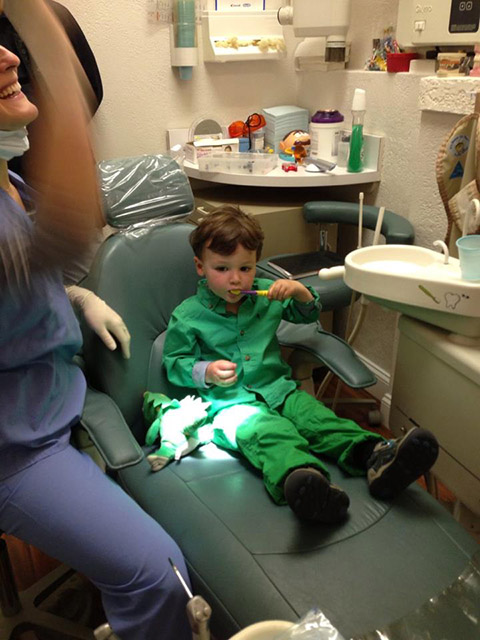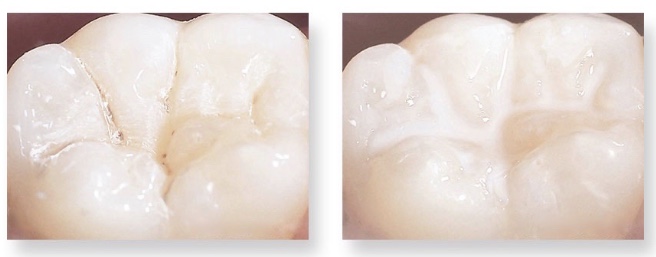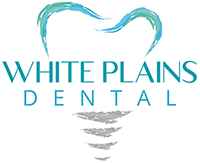
Pediatric dentistry is a specialty that provides both primary, therapeutic and comprehensive preventive dental health care for infants and children through adolescence, including those with special health care needs. We are committed to practicing the best dental care no mater how small our patients may be by utilizing the most advanced dental technology. Our dental clinic and dental team provides a warm, friendly and stress free environment for even the youngest patients and prepare them for a lifetime of good oral health.
What is the difference between a pediatric dentist and a regular dentist?
A pediatric dentist specializes in caring for the oral health of children; infants through teens. Children have specific needs when it comes to their dental health. A pediatric dentist will provide all-inclusive oral health care for your child, including primary, preventive and therapeutic care. This specialization is derived from years of residency training.
Children require specialized care. Most children are unable to remain patient during dental procedures and may not respond to instruction. In many cases, young children and teenagers have trouble dealing with what is known as dental anxiety. These circumstances require a special touch, understanding, and specialized training.
We ensure your child receives the care and patience he or she needs. He or she will be introduced to an environment that is fun and calming. Remember, your child’s confidence growing up relies on many things. One of them is a healthy smile. We’ll help your child develop the habits they need for a healthy smile that will last a lifetime.

Pediatric Dental Clinic: Your Child’s First Visit
This initial visit to the pediatric dentist will help set the tone for all future visits, instilling in your child that trips to the dentist are fun and nothing to fear. While we all must do our part to ensure your child has the best experience possible, we will do everything possible to make sure they feel safe, secure, and comfortable. In fact, it’s what we do best!
We are known for going the extra mile to make sure your child is as relaxed as possible. Our goal is to watch your child leave with a great big smile and that a trip to the dentist is nothing to fear.
It is very important that your child begin trips to the dentist routinely as early as one-year old. This is recommended by the American Academy of Pediatrics to ensure that any issues that could be present are detected early. Early detection means early treatment. Prompt treatment could mean the difference between avoiding an issue that could develop into something serious later on, and having to deal with ongoing complications for years to come.
Pediatric Dental Care: What to Expect
Getting Started
If your child has been seen anywhere previously, we will want to review that history before getting started. We will also want to review any medical records. Doing this will help us to better understand your child’s medical and dental needs, as well as becoming more familiar with your family as a whole. Remember, our goal is to serve your child’s needs to the best of our ability!
Comfortable Environment
Next, we’ll show your family around the office in a way that your child will love. We will give them the time to become familiar with his or her surroundings, becoming comfortable and feeling at ease. Everything we are going to do will be properly explained and shown in a child-friendly manner.
Exam & Cleaning
We will then perform an initial examination and clean your child’s teeth. We do this to get them familiar with dental procedures. You are encouraged to remain by your child’s side during this process. Your presence will aid the process, allowing the little one to feel comforted and safe.
Prevention
At the end of the examination, one of our Board Certified Pediatric Dentists will discuss with you your child’s current dental health status, preventative measures that should be taken, any treatment that may be needed, and in that event, available treatment options.
Your input is not only encouraged, but needed! We feel that any decisions made about your child’s oral health should be reviewed and agreed to by you with your full understanding of your options.
Comprehensive Pediatric Dentistry for Infants and Toddlers
By the time your child is one-year old, The American Academy of Pediatric Dentistry and the American Academy of Pediatrics recommend that regular dental visits should begin. This initial visit is often referred to as a “Well Baby Exam.” Among ensuring there are no dental emergencies that should be taken care of right away, the visit is meant to offer your family guidance as to how you should begin caring for your child’s teeth.
Making the Visit a Pleasurable One
Together, we can make this first visit a reassuring one for your child. At home, you can help set the mood by using only constructive and positive language when discussing dentists, dental procedures, and treatments. Make them sound relaxing or even fun. Believe me; we will do our part to ensure your child is comfortable when he or she arrives!
You can also introduce your child to books or videos about going to the dentist. There are many available that show acts of courage, highlighting the fun aspects of trips to the dentist, and finally, showing that they have nothing to fear.
One thing to always be aware of is displaying any nervousness or anxiety leading up to the visit. Your child is more in tune with you emotionally than you may realize, and may pick up on these feelings. Make sure to remain calm and relaxed and your child will, too!
Friendly Tips: Things You Can Do to Care for Your Infant/Toddler’s Teeth
From the moment your child gets his or her first tooth, it is important to start brushing. Many parents believe that this comes later, but this is incorrect. Brushing is important from day one!
Be sure to clean each of your child’s teeth completely, covering the entire surface. There are plenty of fluoride-free training toothpastes on the market that will make this process easy.
Remember, once teeth start coming together and touching one another, you should be teaching your child the importance of flossing every day.
Once your baby has teeth, avoid putting him or her to bed with a bottle filled with anything other than water. Otherwise cavities will begin to form very quickly.
Comprehensive Dental Care for Children
Healthy primary teeth, also known as baby teeth, are very important to your child’s overall health. This is due to the role these teeth play in their development. Maintaining the ability to thoroughly chew their food is the first stage of ensuring complete nutritional health. They also provide a ‘pathway’ of sorts for your child’s permanent, or adult teeth. While your little one will lose all their primary teeth, the first will begin to loosen between 6 and 7 years old on average. However, their baby molars will remain until around 11 to 13 years old. Through these years, it is very important to maintain good oral health to ensure proper development, while a lack of proper oral care can extend to medical issues.
Friendly Tips: Things You Can Do to Care for Your Child’s Teeth
Once your child reaches 2 years old, they can begin brushing with fluoridated toothpaste. Be sure not to use too much. Just a drop the size of a pea is good enough for now. Also, make sure they are able to spit and rinse properly. They should be able at this age, but it’s not uncommon to have to wait an extra year.
While brushing 3 times a day is recommended, brushing at least twice a day for slightly longer is just fine as long as they are properly flossing, as well.
Try to keep in mind that until around 9 or 10 years old, your child lacks the dexterity and mobility needed to brush the entire surface area of their teeth. They will need adult assistance to perform these complex movements, including flossing, until then.
We understand that completely removing sticky sweets such as fruit roll-ups and dried fruits may prove difficult. Try to reduce consumption whenever possible, and limit sodas and other sugary snacks as much as possible. When your child does partake in goody eating, just make sure they brush and floss immediately after to avoid sugar sitting on their pearly whites for too long.
Once your child’s permanent molars come in completely, you may want to consider sealants. Sealants will protect the chewing surface, keeping them safe from the rigors of acids due to food and plaque buildup.
Thumb sucking that persists after your child has their first adult tooth can lead to numerous oral health complications, including crooked teeth and improper mouth development. If this is the case, please let us know right away. There are options to explore that can help correct this habit.
If you have any questions, would like to make an appointment or would like to arrange a consultation, please call or make an appointment online.
Complete Pediatric Dentistry for Teens
Unfortunately, teenagers are a high-risk group for tooth decay. This is due to many reasons, but what seems to be one the most prevailing reasons is freedom. Once a teen reaches a certain age, parents usually grant them additional freedoms. They may have greater choices when it comes to food choices such as snacks and drinks. They may have the ability to choose their own food when they are out with friends, leading to increased risk of unhealthy choices that can lead to increased tooth decay.
Along with freedom comes less time spent maintaining oral health. Believe it or not, these years are very important for developing lifelong habits. Developing oral health habits are critical as your teen moves closer toward adulthood. These years count.
We will give your teen an individual risk assessment for gum disease in order to gauge the ideal frequency of needed visits and treatment options, if needed. Some cases may need a combination of pediatric dentistry and orthodontic care. Having the ability to find these problems early on will help us to correct them before they become a larger – and more expensive – issue.
Friendly Tips: Things You Can Do to Care for Teens
- Where Brushing Meets Flossing
Brushing your teeth at least twice every day and flossing at least once a day are the first line of defense against tooth decay. - Just Say No – To Junk Food!
Eating healthy food like fruits and vegetables and staying away from junk food, sugary snacks and drinks will greatly reduce your chance of cavities. - Just Say No – To Sports Drinks!
Sports drinks are highly acidic and high in sugar. Avoiding them will reduce your chances of getting cavities. - Smokeless Tobacco is Not an Alternative
Chewing tobacco will still give you periodontal disease in as little as 4 months. It can also cause several forms of oral and esophageal cancers, as well as premature tooth loss. - Protect Those Pearly Whites
If you are active in sports or other physical activities, wearing a mouth guard will decrease your risk of mouth injury including chipped, broken, or missing teeth. - Are You Sure About Those Piercings?
Oral piercings greatly increase your chances of chipping or breaking your teeth. The area is also more susceptible to bacteria which can lead to infections. - Keep Regular Dental Appointments
Keeping with your regular dental appointments will keep your teeth healthier, letting you keep that dazzling smile!
If you have any questions, would like to make an appointment or would like to arrange a consultation, please call or make an appointment online.
Nitrous oxide: Often called “laughing gas,” is a very safe, mild sedative that will help your child remain relaxed during dental procedures. Your child’s Pediatric dentist will administer nitrous oxide with the use of a “nasal mask”which carries air (oxygen) mixed with the nitrous oxide. Your child will be asked to breathe through the nose, not the mouth, and will sense a faint, sweet smell. This will take effect in about 5 minutes. The mask will remain in place until the procedure is done. Your child will be awake during the entire procedure and may have a “happy” feeling. When the procedure is complete, the nitrous oxide will be turned off and your child will breathe in pure oxygen for about 5 – 10 minutes to clear out any remaining gas. You should limit your child to a very light meal before this procedure, such as toast or a bagel ( 1-2 hours prior to appointment). Please avoid dairy and eggs.
Note: please check with front desk about the fees


Dental sealant is a thin, clear or white coating painted on the chewing surfaces of teeth, usually the back teeth (the premolars and molars). Sealants prevent dental decay if done early as soon as the tooth erupts. The sealant quickly bonds into the depressions and grooves of the teeth, forming a protective shield over the enamel.
Although thorough brushing and flossing can remove food particles and plaque from smooth surfaces of teeth, the bristles of the tooth brush cannot always get into all the nooks and crannies of the back teeth to remove the food and plaque. Dental sealants protect these vulnerable areas from decay by “sealing out” plaque and food.
